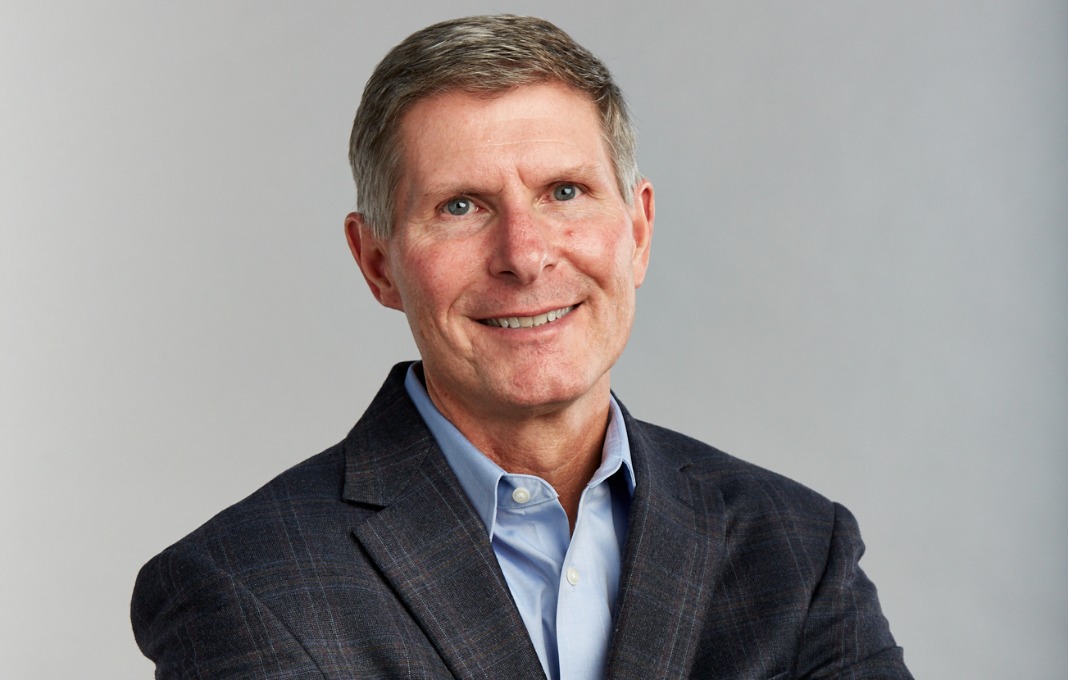Tom Panther is CFO of Fleetcor Technologies, a major company on the cutting edge of a payments-systems industry that is crucial to the continued functioning and expansion of the global economy. But one reason he’s so enamored of the business is because it’s as ancient as human society.
“It’s complex, and I like complicated puzzles,” says Panther, who has been financial chief of the $3.8 billion company based in Atlanta since spring of 2023. “That’s been attractive about this industry and how it has continued to evolve as technologies and consumer and business demands evolve.
“And people have been moving capital and bartering since the beginning of time: grain, coins, then that evolved to cash and checks and ACH and different modalities. Digital payment systems allow consumers and businesses to transact with one another and facilitate e-commerce. There will always be billions of something sloshing around.”
Fleetcor handles the “sloshing” through corporate payments, vehicle and mobility payments, and “lodging solutions” that include booking, managing and paying for workforce travel. The company operates in more than 150 countries, with international revenues comprising 39 percent; has more than 800,000 business clients, five million-plus consumer clients, and more than 4 million merchants and vendors; and operates 15 proprietary networks.
The company is part of a physical “digital alley” of payment-systems companies that makes Atlanta the “digital payments capital of the United States,” Panther tells StrategicCFO360.
That makes him right at home in more than one way, having spent his entire career in the city climbing through the financial-services business. Panther spent 10 years at Arthur Andersen, learning “the technical side of the finance vertical, with accounting financial statements and SEC reporting,” he says.
Then he went to SunTrust Bank (now part of Truist), where Panther spent 20 years “learning more of the strategic, conceptual parts of the business, by being inside, not being an auditor. I didn’t want to be an outsider looking in, but an insider in the company, trying to influence the company and helping it achieve its goals.” Panther rose to chief accounting officer, corporate controller, senior vice president of corporate finance and head of capital planning and analysis.
In 2019, Panther moved down the road to Evo Payments as CFO, prior to its acquisition by Global Payments. He helped Evo deliver strong revenue growth and significant margin expansion and executed a number of key initiatives, including international M&A, debt and capital financings, and as an advisor to the board regarding the company’s sale.
Panther says he likes to “be part of industries that are evolving, not static,” and digital payments certainly is one of those. It is a crucial part of the infrastructure of an increasingly complex global financial system, and will enable growth in new areas such as electric vehicle charging systems, where mobile payments of course will serve as the backbone of consumer usage.
“The beauty of our business is that it isn’t capital-intensive,” he says. “Only about 5 percent of our free cash flow do we have to pour back into capex, so essentially we’ve got a 95 percent free-cash-flow conversion ratio, which is unheard of. We can make investments without expending a lot of capital and be ready as consumer and business demands evolve.”
But Panther doesn’t believe the future of digital payments is synonymous with bleeding-edge aspects of the business, such as cryptocurrencies. “I don’t see bitcoin as being a replacement for currencies,” he says. “It got ETF status and will resemble more of a commodity that can be exchanged, not something ubiquitous that everybody trusts.”
On the other hand, he says, consumer trust will grow for increasingly advanced payment-recognition systems. “Speed will be something that will only get faster in terms of transactions between two parties, and the technology will evolve around biometrics primarily for ease and convenience, but also fort security. People will pay for those technologies because of the savings from preventing fraud.”
The role of CFO also continues to evolve, he says. “I like to analogize my role to that of a physician,” Panther says. “We in the finance organization are the company’s physicians. When you go to a doctor, they do lots of tests, gather lots of information. But if all they do is regurgitate that back to you—hemoglobin and cholesterol counts, or whatever—you don’t know how to understand it, and you as the patient don’t know your health condition.
“As CFOs, we take lots of information and work with it in order to help the patient, the company, be as healthy as possible. Sometimes we have to give critical feedback, or sometimes a pat on the back related to ‘diet’ or ‘nutrition.’”
Here are some ways “Dr.” Panther believes the CFO role should function:
Know the business. “It’s critical to have the core competencies, but that’s not a differentiator—that’s table stakes” for a CFO, he says. “Maybe not to the same degree as the guy who runs it every day, but if you’re going to appropriately critique and allocate resources to the business, you’d better make sure you understand what it is you’re critiquing and how to allocate resources to it.”
Learn proactively. Thus, Panther advises financial careerists to engage. “Go out into the business, don’t sit in the four corners of your office, and certainly not at home. Spend time with the business’ leaders, take time to go lunch with them. They’re busy and don’t want to spend hours with you, but people like to socialize. This sort of thing is the defining factor of someone who’s average versus someone who has the potential to be of high value-added in the financial organization.”
Be close with the CIO. “Companies have gotten very complex, and information flows are super-fast now,” Panther says. “Our CIO and I get together every two weeks just on structure, and talk with one another about what’s going on from a risk perspective and technology projects, and from a finance standpoint, budget and capital allocation. This is very important, because companies are so dependent on technology.”
Wield M&A. Mergers and acquisitions are an important part of the payment-systems industry, Panther says, because of new technologies and expanding markets. “And we’d better understand what we’re buying. The due-diligence process is quite critical. In [discussions], you can only get to know the target so well, so you’ve got to do your best in the diligence process to learn as much as possible. You don’t want to get a tiger by the tail.”
Stress relationships. “You can’t have M&A be just a data exercise only,” Panther says. “You want to make sure you’ve taken the time to try to create relationships because many of these [employees of the target] are going to be important to the ongoing success of the [acquired] entity in the short term, through integration, or in the long term as you harvest the benefits” of the merger.
Emphasize integration. Valuation of most M&A targets remain “in a fairly tight band” as the transaction process goes on; “you don’t wait until the end to get a sense of the valuation,” Panther says. But the long-term benefits often hinge on integration. “A lot of companies underplay the importance of this. It’s not just a matter of simplifying legal structures or technology platforms. Does [the target] have a kludgey technology they carry with them, or do you have organization or real estate overlaps?”
Don’t sweat the economy. “Overall, it’s still a strong economy. Put aside volatility and how markets sometimes overreact generally, and what you see out there is an economy that’s finding its way out of Covid and dealing with some disruptions that created pressure on inflation, which has had a trickle-down effect on wages and interest rates.
“But it’s all within a range, so that we shouldn’t be overly economy-sensitive. The things we are experiencing—I would call them vibrations, not whipsaws.”








